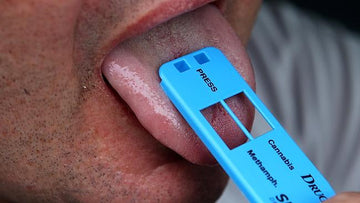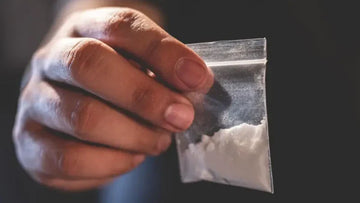In recent years, the UK has taken significant steps to combat drug driving, recognising the serious risks it poses to road safety. One of the pivotal measures in this fight has been the introduction of roadside drug testing, allowing police officers to swiftly identify drivers under the influence of drugs. Failing a roadside swab can lead to severe penalties, reflecting the government's commitment to ensuring safer roads for all.
When a driver is stopped and suspected of being under the influence of drugs, police officers have the authority to conduct a roadside drug swab test. This test typically checks for the presence of substances such as cannabis, cocaine, heroin, and other illegal drugs. If a driver fails this test, it indicates that they may be impaired and poses a risk to themselves and others on the road.
The immediate consequence of failing a roadside swab is the potential arrest of the driver. Following the initial test, the driver is usually taken to a police station for further testing, which often includes a more comprehensive analysis of their blood or urine. It's important to note that a failed roadside test does not automatically equate to a conviction; the results must be confirmed through laboratory testing.
Penalties for drug driving in the UK are stringent and vary depending on the severity of the offense and whether it is a first-time or repeat offense. Upon conviction, drivers can face a range of consequences, including:
1. **Driving Disqualification**: A driver found guilty of drug driving can face a driving ban lasting from 12 months to several years, depending on the circumstances of the case.
2. **Criminal Record**: A conviction for drug driving results in a criminal record, which can have long-term implications for employment, travel, and insurance.
3. **Fines**: Offenders can be subject to hefty fines, often reaching up to £5,000, depending on the severity of the offense.
4. **Rehabilitation Courses**: In some cases, the court may require offenders to complete a rehabilitation course, especially if it is a repeat offense.
5. **Increased Insurance Costs**: Following a conviction, drivers may find it challenging to obtain car insurance, and if they do, the costs are likely to be significantly higher.
The legal framework surrounding drug driving was strengthened with the introduction of the Drug Driving (Sentencing Guidelines) in 2019, which established clear penalties reflecting the dangers associated with impaired driving. The guidelines categorize drugs into different groups based on their potential for harm and the likelihood of causing impairment, further emphasizing the seriousness of the offense.
The government continues to raise awareness about drug driving, highlighting the dangers and the legal consequences involved. Campaigns aim to educate drivers about the risks associated with mixing drugs and driving, emphasizing that even prescribed medications can impair driving abilities.
In conclusion, drug driving is treated with zero tolerance in the UK, and failing a roadside swab test can lead to severe penalties. The combination of driving disqualifications, fines, and the potential for a criminal record reflects the seriousness of the offense and the commitment to maintaining road safety. As awareness of the risks associated with drug driving continues to grow, it is vital for drivers to recognise the importance of responsible behaviour behind the wheel to protect themselves and others on the road.






